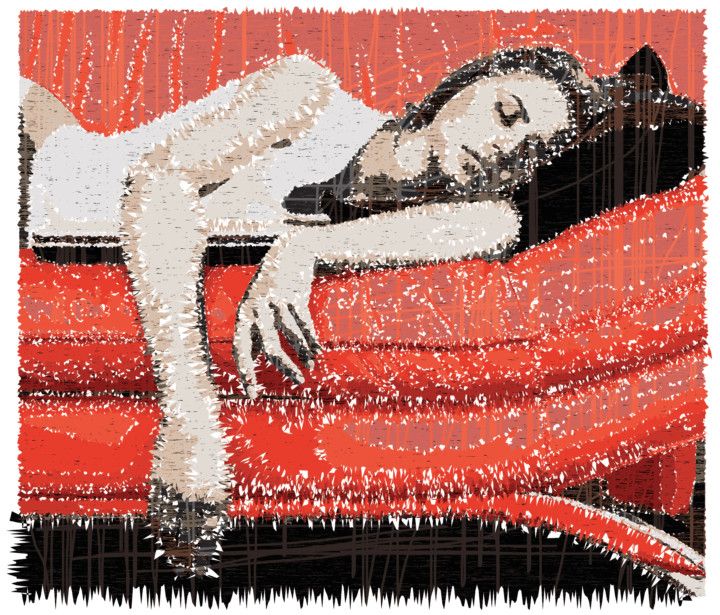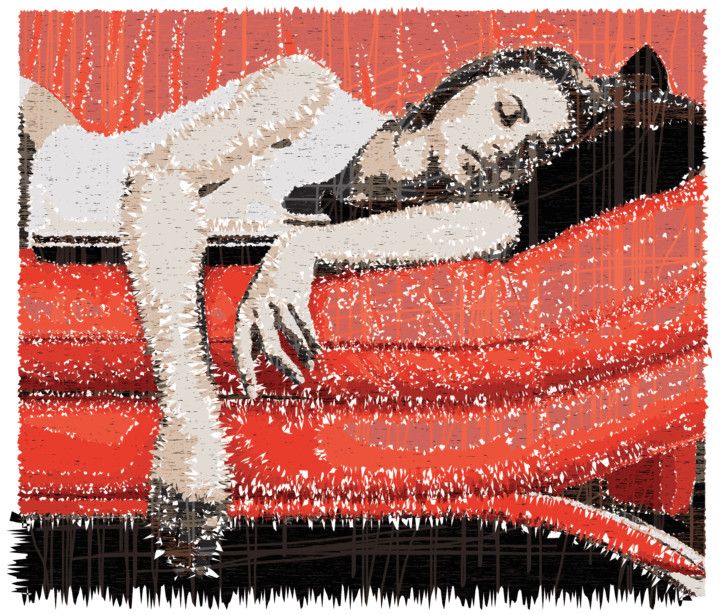Learn about brain health and nootropics to boost brain function
Why sleep is the best medication


In the screen-lit bustle of modern life, sleep is expendable. There are television shows to binge-watch, work emails to answer, homework to finish, social media posts to scroll through. We’ll catch up on shut-eye later, so the thinking goes — right after we click down one last digital rabbit hole.
Brain research, which has pushed back hard against this nonchalant attitude, is now expanding rapidly, reaching beyond the laboratory and delving into exactly how sleep works in disease and in normal cognitive functions such as memory. The growing consensus is that casual disregard for sleep is wrongheaded - even downright dangerous.
Preschoolers who skip naps are worse at a memory game than those who snooze, even after the children “catch up” on sleep the next night. An alarming new line of research suggests poor sleep may increase the risk of Alzheimer’s, as even a single night of sleep deprivation boosts brain levels of the proteins that form toxic clumps in Alzheimer’s patients. All-nighters push anxiety to clinical levels, and even modest sleep reductions are linked to increased feelings of social isolation and loneliness.
The research is changing policy in some areas, with school officials, for example, considering whether to push back school start times to better match teenagers’ sleep cycles. The National Sleep Foundation will hold its first consumer expo in March, with offerings ranging from mattresses to sleep trackers - a visible sign of the burgeoning sleep industry. Meanwhile, a growing number of scientists, not normally known for being advocates, are bringing evangelical zeal to the message that lack of sleep is an escalating public health crisis that deserves as much attention as the obesity epidemic.
“We’re competing against moneyed interests, with technology and gaming and all that. It’s so addictive and so hard to compete with,” said Orfeu Buxton, a sleep researcher at Pennsylvania State University. “We’ve had this natural experiment with the Internet that swamped everything else.”
The sleep research community, formerly balkanized into separate sleep disorders such as insomnia and sleep apnea, has begun to coalesce around the concept of “sleep health” - which for most adults means getting at least seven hours a night. But time in the sack has been steadily decreasing.
In 1942, a Gallup poll found that adults slept an average of 7.9 hours per night. In 2013, the average adult had sheared more than an hour off that number. In 2016, the Centres for Disease Control and Prevention reported that a third of adults fail to get the recommended seven hours.
In the blink of an eye, in evolutionary terms, humans have radically altered a fundamental biological necessity - with repercussions we are still only beginning to understand.
“When you are asleep, it’s the most idiotic of all things: You’re not finding food, not finding a mate. Worse still, you’re vulnerable to predation,” said Matthew Walker, a psychology professor at the University of California at Berkeley. “If there was a chance to shave even 10 percent to 20 percent of that time, Mother Nature would have weeded it out through the process of evolution millions of years ago.”
For most of human history, scientific understanding of sleep was limited to asking people how they felt afterward. The discovery in the early 1950s of rapid-eye-movement sleep, when the brain crackled with electrical activity and dreams, changed the field forever. Electroencephalography (EEG) research revealed the sleeping mind cycles through active stages of light and deeper sleep that repeat about every 90 minutes.
For years, animal studies have shown that learning activities are reactivated during sleep, a critical part of how lasting memories are formed. More recently, Princeton postdoctoral researcher Monika Schnauer asked 32 people to sleep in the lab after they had been asked to memorize 100 pictures of houses or faces. By analysing their patterns of electrical brain activity, she found she could effectively read their minds, predicting which images they had been studying while awake - because they were replaying them.
Riggins teamed with Rebecca Spencer, a neuroscientist at the University of Massachusetts at Amherst, to study how naps affect memory in preschoolers - a critical scientific and policy question as more schools offer prekindergarten. Spencer had previously found that preschoolers who were taught a memory game performed better after a nap than if they had been kept awake. This summer, she found that napping helped strengthen complex emotional memories, but only when combined with a night of good sleep.
Sleep problems have long been recognized as a symptom of psychiatric and neurological disorders, ranging from depression to Alzheimer’s. But increasingly, researchers are exploring the two-way street between disrupted sleep and disease. And researchers who started out interested in cognitive functions such as memory or brain development are finding themselves focused on sleep because it is so fundamental.
Insomnia, for example, is both a risk factor for depression and a complaint of people with depression. Adults over 50 with lots of insomnia symptoms were more likely to fall than those without, according to one study. Studies have linked pain to poor sleep, showing that older people with sleep problems are more likely to develop pain, and vice versa.
The idea has spawned fresh interest in finding ways to enhance sleep for therapeutic benefit. One thread of research focuses on slow-wave sleep, which diminishes as people age. A small study presented at the Society for Neuroscience conference last year found early evidence that playing “pink” noise - similar to white noise but with different frequencies - in a specific pattern could increase the proportion of time people spent in restorative deep sleep.
Others are examining whether sleep’s memory consolidation qualities can be enhanced. In Paller’s research, people learned to associate sounds with visuals placed on a grid - for example, a cat’s meow with a picture of the actor Brad Pitt and the sound of a violin with a picture of the Eiffel tower. Then they napped, and researchers played half the sounds — quietly enough so people didn’t wake up — to see whether they could reactivate the memories.
After waking, the researchers found, people were more likely to forget the placement of visuals whose sounds were not played while they slept. When the sounds were timed to coincide with bursts of sleep activity called spindles, their recall upon waking was even better.
Paller hopes the approach can be used to help reinforce learning during rehabilitation- for example, among stroke patients learning to use their arms again.
There is growing interest in sleep outside the lab, too. At the massive annual CES electronics show in Las Vegas, sleep-tech products got their own marketplace in 2017. The National Sleep Foundation show in Houston this March will host 200 brands and companies and is expected to draw 10,000 consumers.
While interest in sleep is soaring, many sleep researchers worry that the risks of too little sleep still are not taken seriously. Doctors routinely measure blood pressure and weight, they say, but many never ask patients how they are sleeping.
Calla Kessler is an American photographer and columnist
Click here to view full article